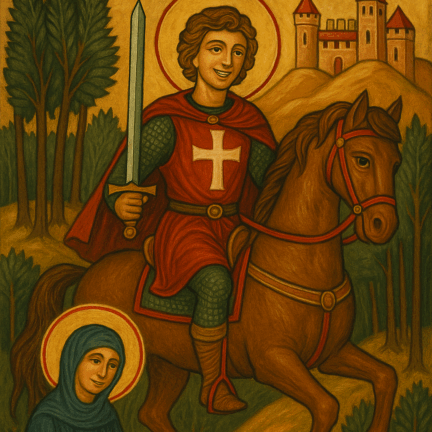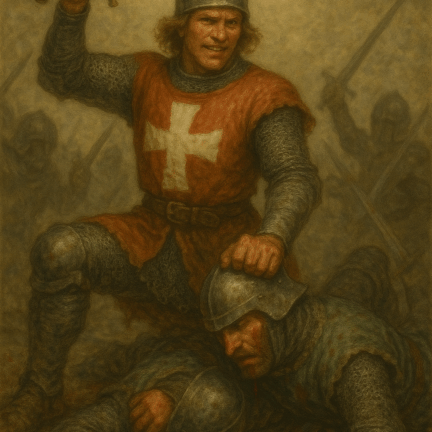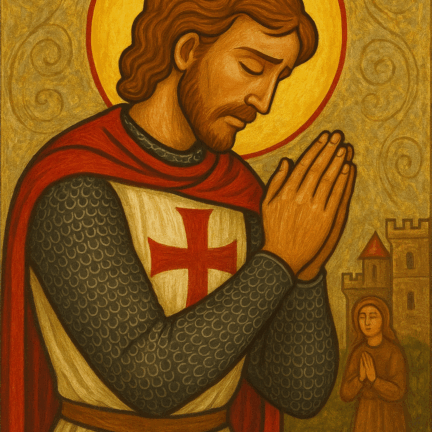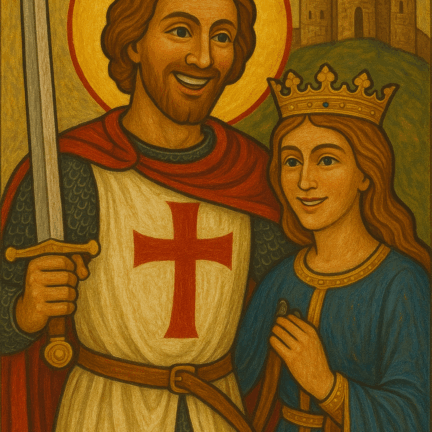Parzival, Christ and the Path of Individuation – A Call to Chivalrous Virtue
Parzival - A Call to Chivalrous Virtue
The story of Parzival is one of the great myths of Europe. Wolfram von Eschenbach wrote it down in the Middle Ages, but its message extends far beyond knightly tournaments, castles, and courtly love songs. It is a spiritual map that shows us to this day how a man can find his true calling through trials, mistakes, and purification. For young men seeking guidance in a world full of distraction and temptation, Parzival offers a path: the path of the knight who finds his strength in chastity, virtue, and Christian humility.
Chastity and Piety - The Chivalric Virtues
The Beginning: Innocence and Folly
Parzival begins his journey as a naive youth. Raised by his mother away from the world, he knows little about customs, faith, or life's true purpose. This phase corresponds to what Carl Jung calls the unconscious state of the ego. Every young man begins his life without a clear direction, driven by instinct, curiosity, and strength.
But just as Parzival sets out to become a knight, the young man too must break away from the comfort of his parents' home. He will make mistakes, he will hurt people in his folly, and he will incur guilt. But this is precisely where the path to maturity begins: not through perfection, but through experience, error, and the willingness to learn from it.
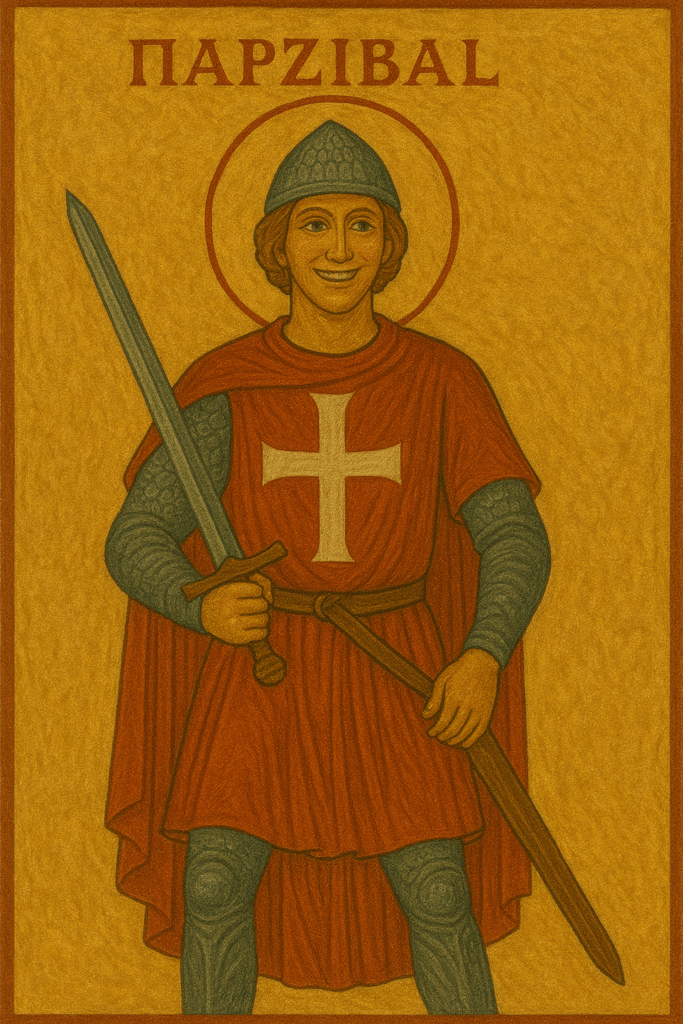
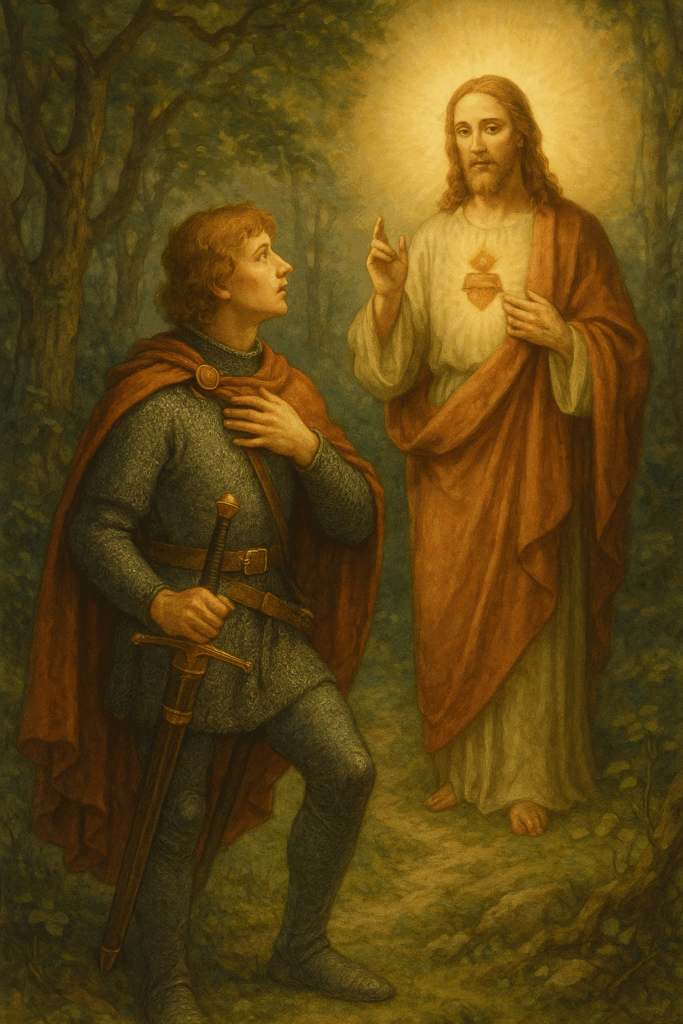
The Call of the Grail: The Christian Center
The heart of the Parzival story is the Grail Castle. The Holy Grail, symbol of Christ's presence, is the goal that unconsciously attracts Parzival. But on his first visit, he fails: He fails to ask the crucial question—"Whom does the Grail serve?"—instead, he remains silent, out of ignorance and false pride.
In Christian understanding, this is the experience of sin through omission. Not only our wrong deeds, but also silence, our inaction, separates us from God. The young knight only later realizes that true strength lies not in outward deeds, but in compassion, humility, and questions about meaning.
The Grail is thus the image of the Christian center: Christ himself, the source of life and salvation. Parzival's path is ultimately the path to the cross—not in outward imitation, but in inner discipleship.
Individuation: The Inner Knight's Path
Carl Jung describes the process of individuation as a human being's journey to wholeness. Parzival's adventures are an archetype of this. The hero repeatedly encounters figures who represent inner forces and shadows: temptation, aggression, despair, but also love and calling.
Individuation means not repressing these inner contradictions, but consciously experiencing them and leading them to a higher unity. For the young man, this means not merely playing the "tough warrior," but also allowing for gentleness, compassion, and remorse. A true knight is not one who suppresses his impulses, but one who dedicates them to God and transforms them into virtue.
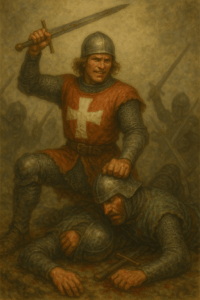
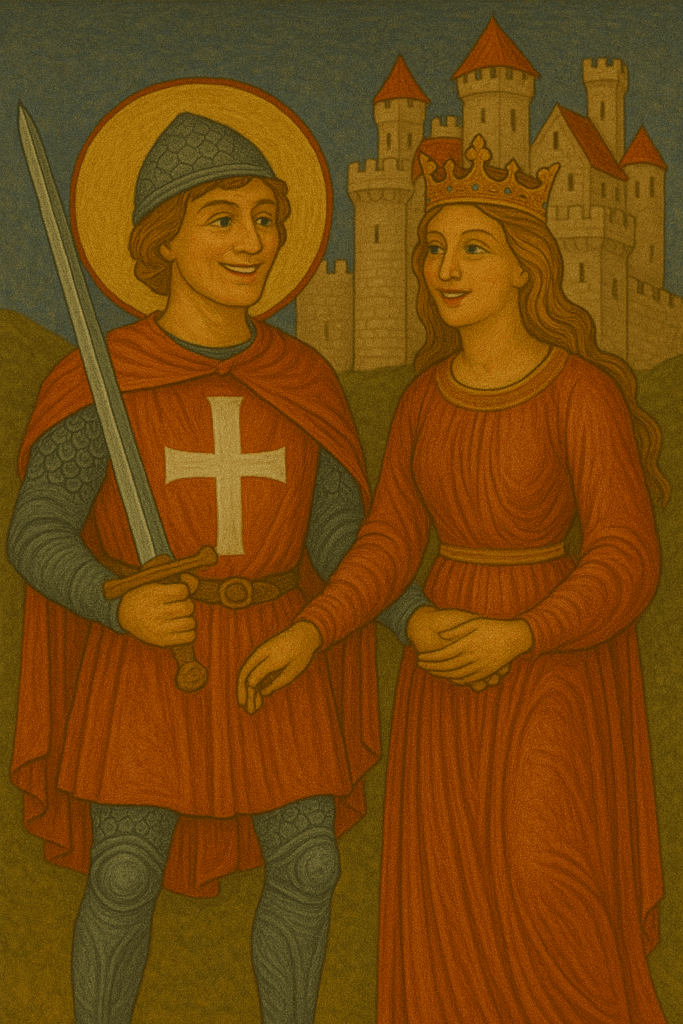
Chastity and Virtue as a Source of Strength
In an age where excess and indulgence are elevated to the norm, the virtue of chastity seems alien. But Parzival shows: Those who keep their heart and body pure preserve their strength. Chastity is not the denial of life, but the orientation of life energy toward something higher.
A chivalrous life means not giving in to the whims of the moment, but remaining steadfast – in service to God, to one's wife, to the community. Virtue is not a weakness, but the highest form of discipline and self-control.
Guilt, Repentance, and Redemption
Parzival bears guilt. He hurts, he fails, he remains silent when he should have acted. Yet his path leads not to despair, but to repentance. Through repentance, prayer, and renewed trials, he is purified.
Here, the Christian truth is revealed: Man does not become perfect through his own strength, but through grace. Christ takes away the burden of guilt when man humbly submits. For young men, this means: mistakes are not the end. Those who repent and turn to Christ can begin anew—stronger, more mature, more true.
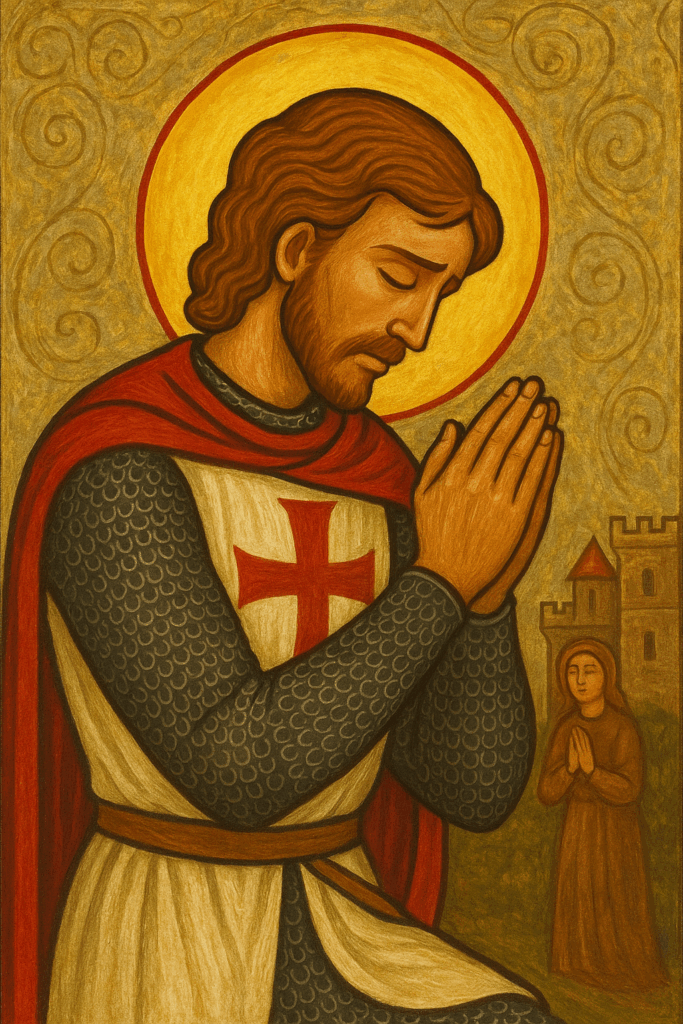
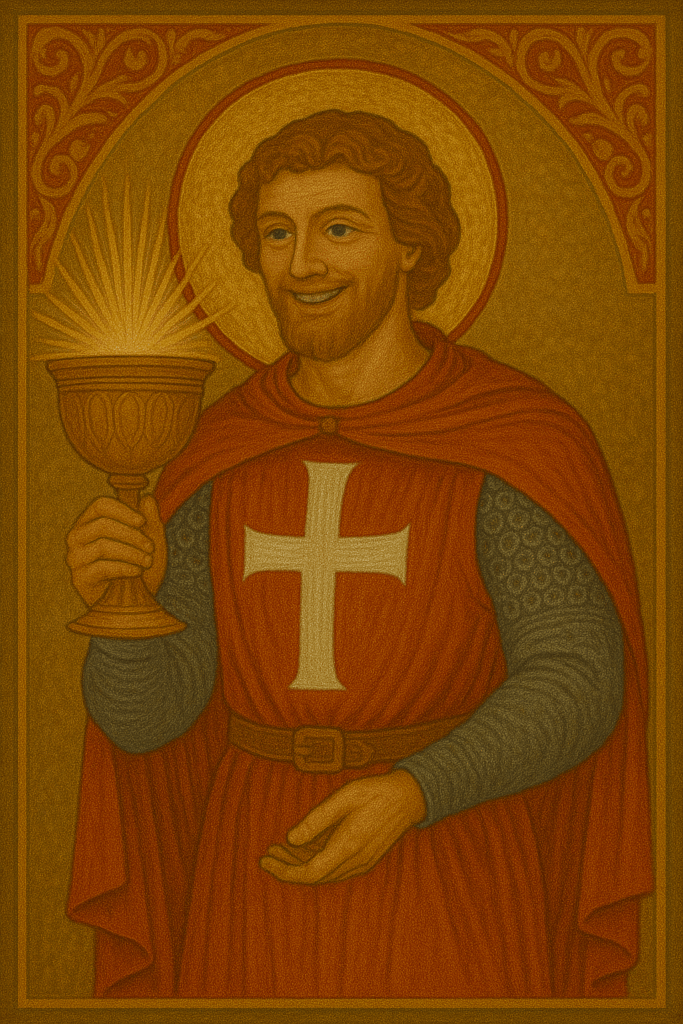
The King of the Grail: Completion of the Journey
In the end, Parzival himself becomes King of the Grail. He is no longer the foolish boy, but a man who has matured into wholeness through guilt and remorse, through struggle and devotion, through humility and love.
This is the meaning of the knightly way of life: not external glory, not power or possession, but inner coronation. The knight becomes a servant, the king the guardian of the sacred.
The Mission to Youth
What does this mean for young men today?
- Leave your mother and go out into the world – Don't stay in the security of your parents' home, but venture out into your own adventure. Only by leaving your mother will you become a man.
- Retreating into comfort keeps you small, but setting out makes you mature.
- Seek the Grail – Align your life with Christ, the highest goal.
- Learn from mistakes – Don't let guilt paralyze you, but grow through repentance.
- Practice chastity and virtue – Preserve your strength by putting it to use.
- Walk the path of individuation – Integrate your strengths and shadows so that you become whole.
- Serve – A knight does not live for himself, but for God, the truth, and the weak.
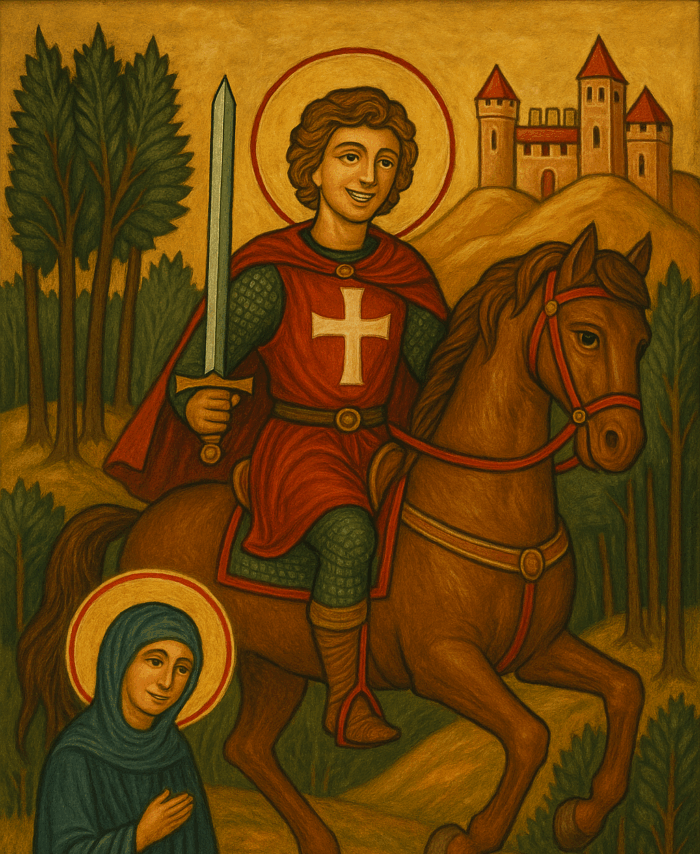
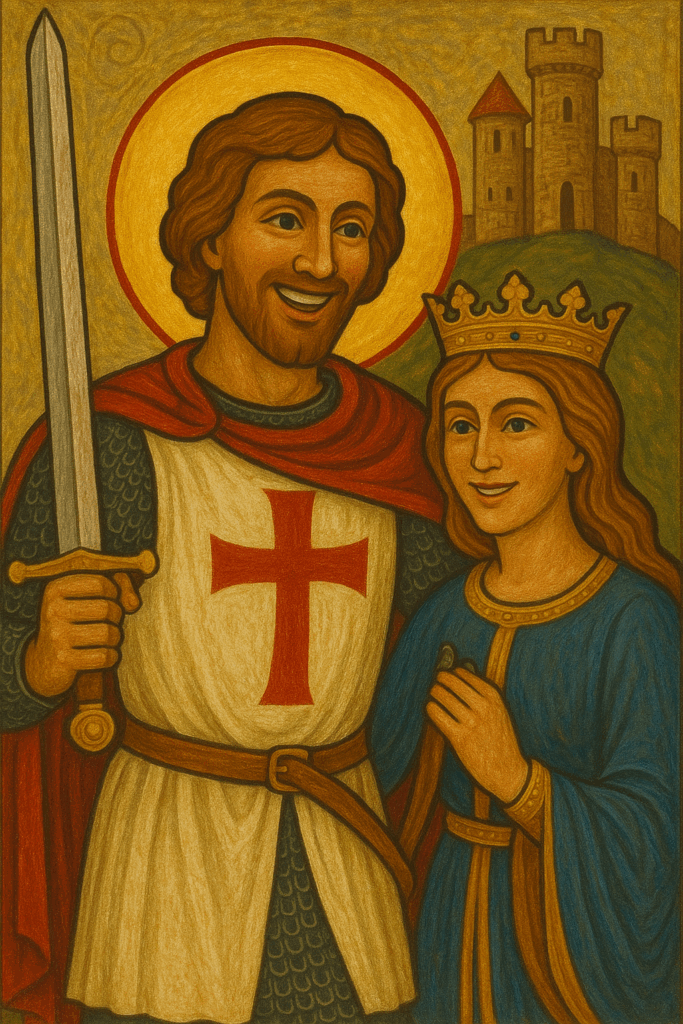
Heart, Courage, and Devotion
The story of Parzival is more than a courtly romance. It is a gospel in chivalric language, a mirror of the Christian mystery, and an archetypal guide to the man's soul.
Those who take this path seriously become not merely consumers of the world, but knights of the spirit. And in a time when true role models are lacking, young men in particular can raise a new generation of knights through chastity, virtue, and following Christ—not with sword and shield, but with heart, courage, and devotion.

